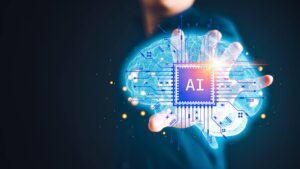All about Artificial intelligence
After solve a previously indecipherable mathematical problem and from assemble the fastest magic cube in the worldAn artificial intelligence has just surpassed human scientists in a robotics experiment.
This happened at the MIT Computer Science Laboratory, one of the most renowned universities on the planet. Doctor Byungchul Kim’s team has developed a new system based on diffusion models that allows users to sketch a robot and optimize your design with Ia.
read more
When specifying modifiable parts and dimensions, AI generates and tests new structures in various simulations before manufacturing. In the case we are dealing with, the Ia robot jumped 41% higher than a human equivalent.
According to the researchers, the advance marks a significant step towards automation and the improvement of robot design, combining human intuition with the accuracy of the machines.
The scientific experiment
- The MIT system allows users to provide a 3D model and specify the components they want AI to change.
- Artificial intelligence then begins to make calculations and delivers a series of variants.
- In the case in question, it was more than 500.
- The scientists selected 12 of this total and reached a final design of the robot.
- Although it seems almost identical to the base model, the Ia -enhanced version jumped 41%.
- The unconventional design of AI was not only lighter, but also had greater energy capacity, maintaining its strength.
- The researchers also used the same method to improve the design of the robot to land.
- In this case, the improvement was 84% in landing stability.
- As a next step, the team now analyzes the ability to use extra engines to manage jump steering and improve landing accuracy.
- And should increasingly use the “insights” given by AI.
- And not only in simple robots, but also on more advanced machines.
“We want to expand to more flexible goals. Imagine using natural language to guide a diffusion model to design a robot that can take a mug or operate an electric drill”said Tsun-hsuan Wang, PhD student in MIT, in a statement.
Will I overcome the man?
Will artificial intelligence be overcome human intelligence? For some experts, this will never happen, because our brain has an unmatched creative power. For others, however, the question is no longer “if” but “when.”
One of the advocates of this thesis is Demis Hassabis, CEO of Google DeepMind (Google AI search division). For him, this technology is very close: will start to arrive in the next five to ten years.
This current and interesting debate was the theme of our column speaks there. The interviewee of the time was Roberto Pena Spinelli, a physicist from USP, specializing in Machine Learning by Stanford and researcher in the area of Artificial Intelligence.
You can watch this conversation in full In this link.
The information is from Interesting engineering.











